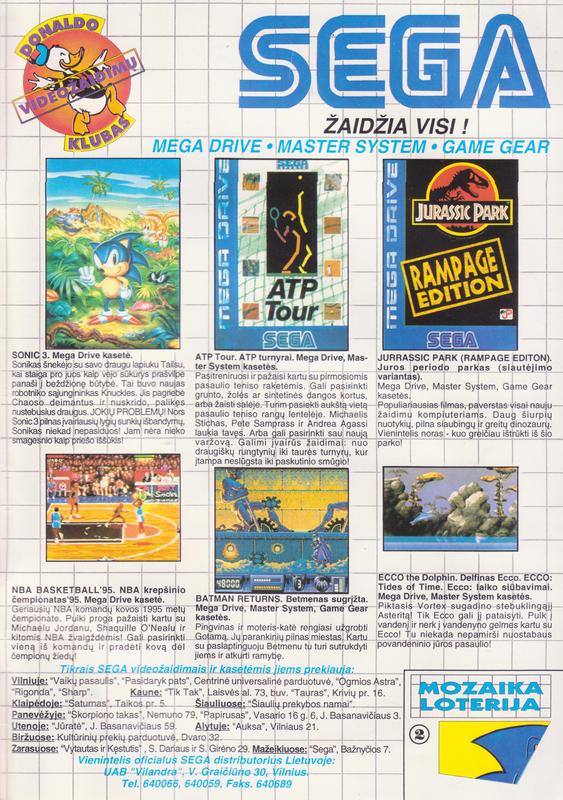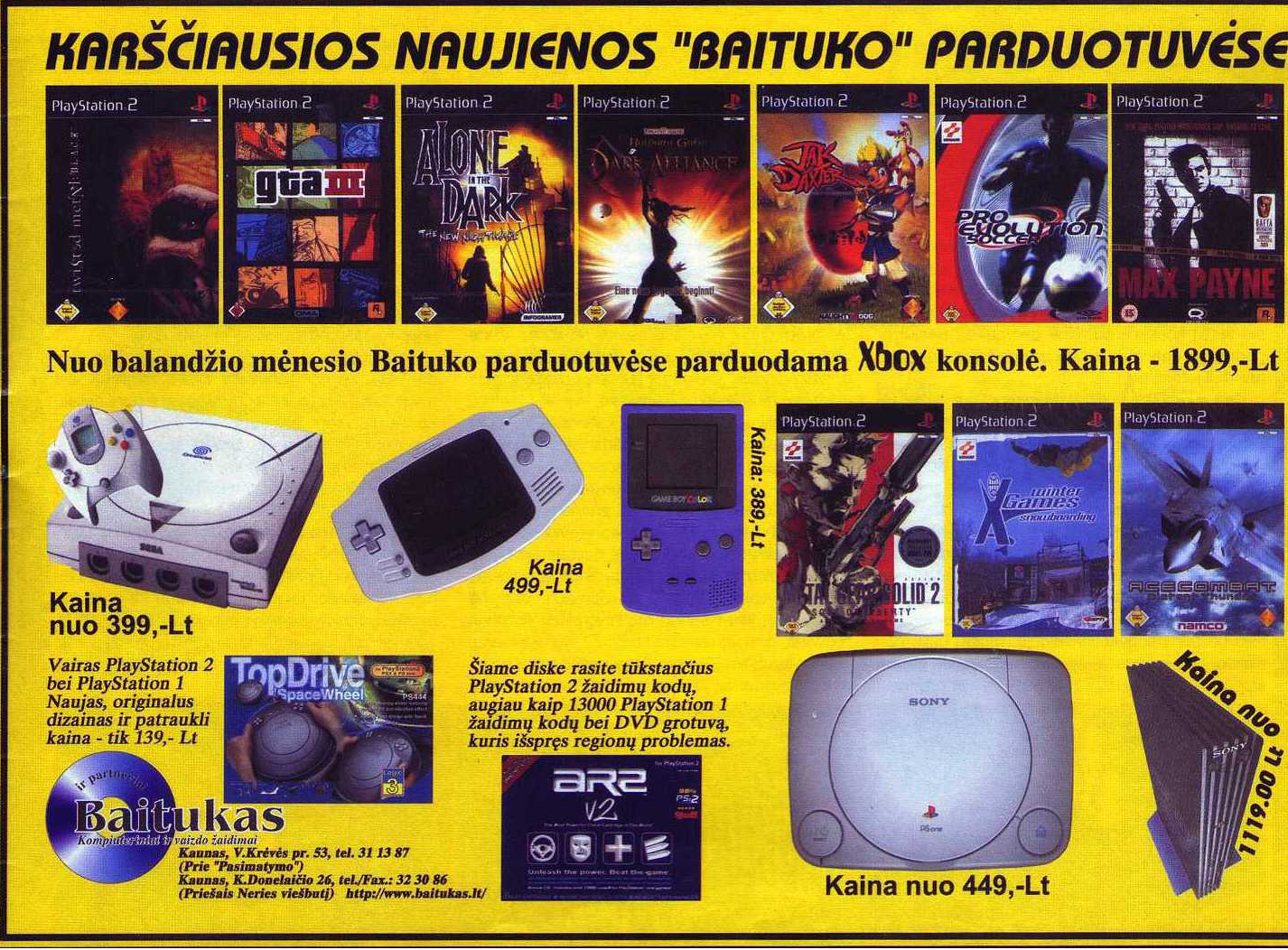History of Sega in Lithuania
From Sega Retro

|
| History of Sega in Lithuania |
|---|
| Official Sega distributor(s): Vilandra (1995-1998), Andrico (2008-2013), Gamelab (2009-2013), TKM Baltics (2014-2019), iWare Distribution (2019-present) |
This short article is in need of work. You can help Sega Retro by adding to it.
In March 11, 1990 Lithuania declared independence from the USSR and became an independent state. For foreign companies such as Sega, this meant a new market must be obtained. From the beginning of the 90s, , Zhiliton 938-A , a clone of the Nintendo Famicom console, was popular in the Baltic countries. This console had exactly the same design as the Sega Mega Drive. However, no one suspected that the console was similar to Sega's products due to their lack in the region.
In 1993, Steepler decided to expand its operations in the former USSR region and began selling the Dendy console also in the Baltics. The console received some attention, but was never as popular as Zhiliton especially with more and more new and cheap clones on the market such as UFO, Liko, Terminator 2 and Subor. In 1994, Steepler released clones and illegally imported Mega Drive consoles but they passed without much publicity in the Baltics. At the end of 1994, Steepler became a Nintendo distributor in all former USSR countries and began selling Nintendo products that were not very popular in the region.[1]
The first Sega official consoles appeared in 1995. The representative was Vilandra which started distribution and promotion of Sega Mega Drive model II, Sega Master System model II, Sega Game Gear One of the first was a trip to Disneyland and in the console boxes there were lottery cards for this event. In children's magazines such as Mickey Mouse and Genys appeared sponsored articles about Sega games and consoles as well as a lottery with prizes. In autumn 1995, Sega Mega-CD II and Mega Drive 32X were released. In 1996, the focus was on the Sega Saturn promotion, which could also be won in some children's magazines. In 1997, apart from winning consoles, there was a trip to Sega World to win. Unfortunately, Saturn was a very expensive console and in 1998 due to poor sales of this console, Vilandra withdrew from further distribution.
Mega Drive with Famiclones and Playstation still remains as one of the most popular consoles from the 90s in this region. Some stores sold even pirate games like for example Merkurijus.
Sega Dreamcast reached Lithuania in 2000, but it is not known who distributed the consoles.
In 2008 Andrico became a distributor.[2] In 2009, the company made an agreement with Gamelab regarding the sale of games in the region of the Baltic states.[3] The cooperation ended in 2013.In 2014, the Latvian company TKM Baltics became the distributor of Sega games in this region.The games were mainly available for purchase on the Gamebalt website.[4]
iWare Distribution became a distributor in 2019.
Several publishers from Russia have also released Sega games in this country. 1C-SoftClub sold, among others, Sonic All-Stars Racing Transformed and Football Manager 2011.Akella released Sakura Taisen in the Baltic States.There were also many pirate games on PC from Russia.
also published in:
- Kiber Zona (LT) #6: "Birzelis 1997" (1997-xx-xx)[5]
Mega Drive clones
Until today in Lithuania can be find the bootlegs of the Sega Mega Drive console and games. They are mainly from Russia.
References
- ↑ https://www.kommersant.ru/doc/94004
- ↑ https://web.archive.org/web/20081216013038/http://www.andrico.ee:80/pood/conditions.php
- ↑ https://web.archive.org/web/20110912222305/http://www.gamelab.ee:80/
- ↑ https://web.archive.org/web/20170625073149/http://www.sega.com/sega-approved-partner-list
- ↑ Kiber Zona, "Birzelis 1997" (LT; 1997-xx-xx), page 5
{{History}





